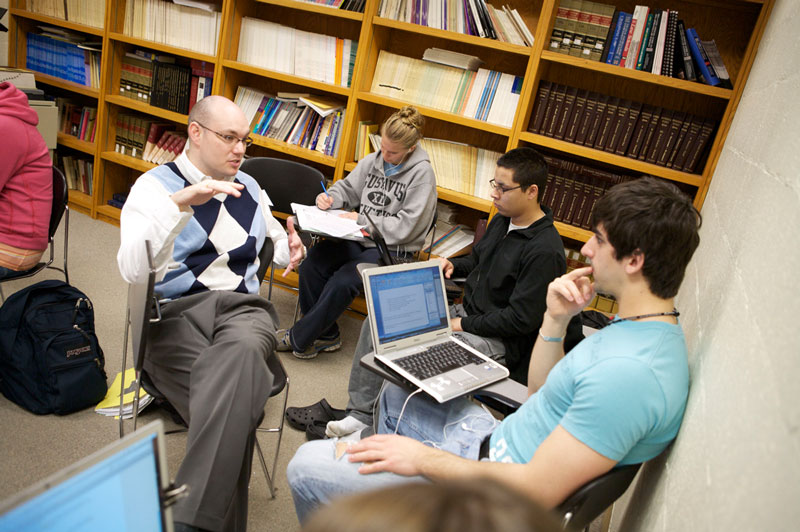College is hard. To any college student, that is the most obvious statement of the century.
Whether it’s the organic chemistry midterm that you’re pretty sure decimated your already barely passing grade, the research essay that you didn’t actually realize was a research essay until the night before it was due, or the one ten-point busy work assignment that you forgot to do that could’ve erased the minus from that B. We all have our battle scars.
Our minds automatically assume that academics are the hardest part of college because we’ve been taught they’re the most important part by a society that prizes overachievement and competition over personal wellbeing.
From kindergarten to college, we are conditioned to believe that our grades define us. I remember coming home from school with my report card in elementary school where we were rated by a number system: 1 for unsatisfactory and needs improvement to 4 for exceeds expectations.
I was an overachieving child used to getting all 4s and when I came home with one 3, I took it personally. I didn’t see it as room for improvement or constructive criticism; I viewed it as a reflection of my worth.
It seems dramatic and childish now, but I realized after struggling through midterms this past couple of weeks that I still do it. I am willing to push myself to the edge of a nervous breakdown just to maintain my GPA.
Like many other students I have forgone any semblance of quality sleep, I have forgotten to eat meals, I have neglected my physical health for lack of time, and I have allowed personal relationships to suffer – all for letters on a piece of paper.
Based on the number of people I see napping in the library and I hear crying in their dorms, I know I’m not the only one.
School teaches us how to solve an equation for x, how to format an essay, how to read classic authors, how to make chemical reactions, and how to memorize countries on a map.
We learn about how ancient civilizations used animal bones to make instruments, how Henry VIII killed all of his wives, how the mitochondria works as the powerhouse of the plant cell, and how geometry will definitely serve us well in the future when we find a broken plate on the ground and just have to know exactly what angle it was chipped at.
Our brains can retain an incredible amount of knowledge, yet little importance is placed on maintaining the health of that vital organ.
Small lessons are given occasionally about practicing self-care when rainy days force the gym class to be held inside, but the information is stored only for the pop quiz at the end of the class and then sinks into the dark recesses of our brains until we retrieve it again a few years later for more-or-less the same lesson in high school.
What is stored inside our brains is prized above how it functions in our daily lives.
None of this is to say that the knowledge we gain isn’t valuable nor that there are no teachers or faculty that genuinely care, but we are conditioned to make our own wellbeing last priority by an education system where grades are king and a society where anything short of millionaire status is failure.
So, college is hard and not only for academic reasons.
College is hard because it’s often the first time in our lives where we’re alone and faced with the task of trying to find a balance between real life concerns of mental, physical, and relational health and the academics we’ve been taught define us by an educational system that has left us woefully underprepared.
